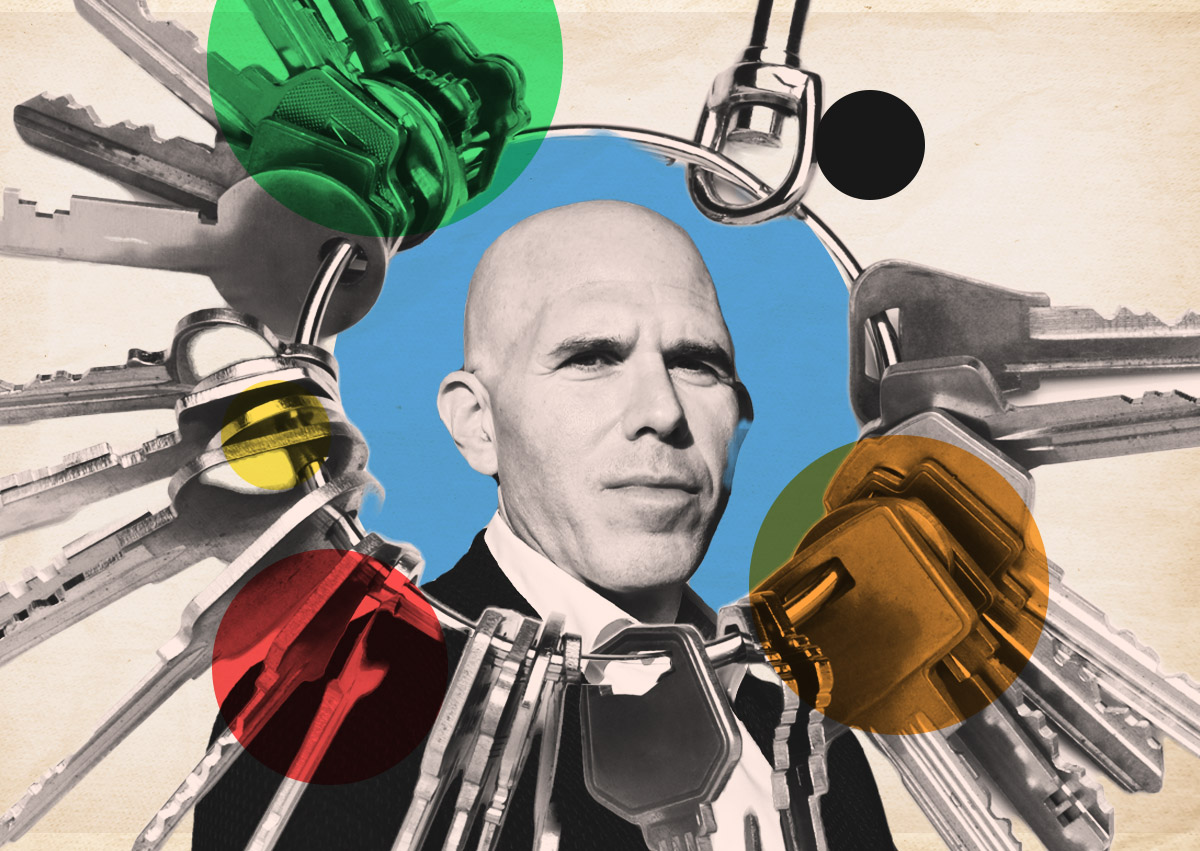Earlier this year, RXR dropped a bomb on New York commercial real estate.
CEO Scott Rechler signaled that his firm might hand lenders back the keys of two office towers that he likened to film cameras in a digital world.
“I’ve never heard of this happening before.”
Mark Edelstein, Morrison FoERster
Last month, RXR’s default on one of them, 61 Broadway, became official. The firm will return the FiDi office tower to its lender rather than try to recapitalize its debt, which RXR stopped repaying in December.
As studies forecast a steady decline in office values because of remote work, it’s not just borrowers trying to head off losses.
Banks that long delayed writing down distressed property debt, favoring an extend-and-pretend approach in the hopes of a turnaround by the struggling asset, are abandoning that strategy, preferring to rip off the Band-Aid instead.
“I’ve never heard of this happening before,” said Mark Edelstein, co-chair of law firm Morrison Foerster’s distressed real estate group. “Banks are actually coming to us saying, ‘We’d rather take the hit today and lose maybe $10 million than give the borrower two years when we might take a $40 million loss.”
Circling the drain
Through the Great Recession into much of the pandemic, the prevailing solution for troubled debt was to kick the can down the road. Lenders holding debt on Covid-wracked hotel, retail and office properties offered forbearance agreements and loan extensions to keep owners afloat until business bounced back.
Banks are typically reluctant to realize defaults, as they force the lender to mark loans to market value. The difference appears as a loss on their balance sheets. An extension staves off that bottom-line hit.
But banks now have dwindling hope that office will recover and that owners can make good on their debt.
“The office industry is in secular decline,” said Ben Miller, CEO of investment platform Fundrise. “Values are going down and they’re going to keep going down.”
A study revised this month by Columbia University and New York University projected office values would shed 44 percent of their pre-pandemic value by 2029 – up from an estimated 22 percent a year ago.
“We’re actually working out deals where lenders are questioning whether this thing will even exist as a fundamental asset,” Faisal Ashraf, founder of restructuring firm Lotus Capital Partners, said of office buildings.
“That’s a huge issue,” Ashraf said.
“Cut and run”
Banks and alternative lenders, such as life insurance companies, with the financial cushion to absorb losses are getting proactive on distress, choosing to take the hit they know over a future one they don’t.
“The lending world is deciding to some degree it’s in their best interest, now, to cut and run,” Edelstein said.
The attorney said he’s seen banks initiate the push for deeds-in-lieu-of-foreclosure and, more surprisingly, short sales, a solution last popular during the 1990s real estate recession.
A deed-in-lieu of foreclosure was RXR’s exit strategy at 61 Broadway: turn the building over to the lender and have the bad debt wiped clean.
But a lot of banks don’t like to take title, insiders say.
“It’s an unenviable scenario, to end up with a Class B or C office building,” Sam Chandan, director of NYU’s Institute of Global Real Estate Finance told The Real Deal’s podcast. “That’s not necessarily the outcome any lender is looking for.”
Some banks, then, are pushing for short sales, in which a borrower unloads a troubled asset for less than the outstanding mortgage and forks over the proceeds over to the bank, which agrees not to pursue the borrower for the unpaid balance.
Workout specialists say banks are giving office owners six to 12 months to finalize a sale, after which lenders will write off the remainder of their debt.
No buyers
Note sales offer a third option. A bank can sell distressed loans for cents on the dollar to wash its hands of the loans. The buyer, having paid far less than what is owed on the loan, can initiate a workout with the borrower or foreclose on the asset securing the loan.
But the secondary market for these loans has been devoid of bidders, as most see office as more trouble than it’s worth, workout experts say.
In early March, Edelstein sent a broker to shop around a Boston office property’s distressed loan. He expected some interest. About a year ago, notes on distressed hotels were drawing more than 100 bidders and fetching as much as 99 cents on the dollar, the attorney said.
His team floated the office debt to 150 potential buyers. Crickets.
“Bids were non-existent,” Edelstein said.
Postponing the inevitable
Not all banks have thrown in the towel on office.
Regional banks, rattled by a triad of bank runs, may see extensions as the best near-term strategy given the recent carnage.
“The banks are getting caught in a cash crunch,” workout attorney Steven Schlesinger said, referring to nervous depositors yanking their money out of some smaller banks.
Those lenders have less leeway to write off bad debts.
Others are still allowing extensions if a borrower gathers up more cash to pay part of a debt.
“We’re seeing lenders ask for bigger paydowns, though, than they did during Covid,” Ashraf said.
The workout specialist said he’s also seen banks ask owners to place a certain dollar figure in reserve to cover a lease that’s scheduled to expire.
Read more



But a growing pool of lenders view an extra equity commitment as postponing the inevitable.
“Unless they get a really, really significant paydown on an office building — like $50 million on an $150 million loan — some of the banks are saying, ‘You can’t really rebalance this,’” Edelstein said.
